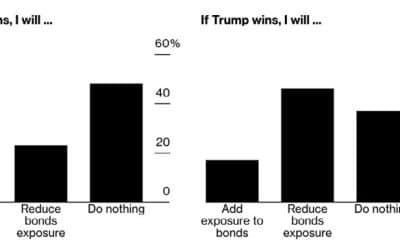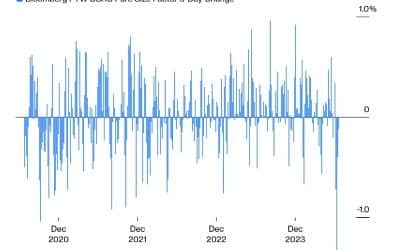French “ASSURANCE VIE”
French Assurance Vies are uncontestably the solution for expats seeking to invest a lump sum or make regular payments.
The reason they are so successful is due to the multiple advantages they offer both residents and non-residents.
The tax benefits are numerous and despite recent changes voted in this year “Loi de Finances”, most advantages remain unchanged.
Tax on withdrawals:
• no tax applied unless withdrawals are made
• only the growth element is subject to tax
• the older the policy the less tax one will pay
• the subscriber always has the choice between paying:
o a “withhold tax” of 12,8% called “Flat Tax” (previously PFL)
if your policy is more than 8 years old, and you withdraw more than 4600 €’s interest during the year as a single person, (or 9200 €’s if you are married), the tax is reduced to 7,5%, up to 150 000 €’s and goes back up to 12,8% after that.
o or adding the interest withdrawn to an “income tax declaration” (the different scales being, 0%, 14%, 30 %, 41% and 45%).
Inheritance tax:
A 152 500 € allowance “per beneficiary” is applied on the death of the person insured. As an example, if there are four beneficiaries, 610 000 €’s (4×152 500 €) of that person’s estate will be totally exempt of French inheritance tax as long as it has been invested in “assurance vie” before the policy holder reaches age 70. Beyond that age, any money invested in an assurance vie has a much smaller allowance of 30 500 €s’ applies and unlike the first allowance is “divided” by the number of beneficiaries, for example if there are four beneficiaries, their respective allowance will only represent 7 625 €’s.
Both these allowances (Art 990 I and 757 b of the CGI) come in “addition” to the common right allowance of 100 000 €’s applicable per child.
Please note that that these allowances apply per “privileged ascendant” (parent) and per “descendant” (children) of the same bloodline.
There is no inheritance tax between husband and wife (or PACSed couples).
Art. 132-12 of the French insurance code also stipulates that Assurance vie is excluded from the person insured’s succession, in other words any amount invested in assurance vie will also override France’s forced heirship system, and the named beneficiaries, whoever they are, and whatever their blood relationship with the deceased is, will inherit according to the tax system previously explained. It could well be that the neighbour is the beneficiary of 152 500 €’s of fathers’ assurance vie, which he will receive under the form of a check sent by the insurance company involved, totally tax free. And no one will have the right to contest, not even the children. Unless, the 152 500 €’s represented fathers’ entire estate, in that case, the children could claim that the premium was manifestly exaggerated.
Social tax:
A 17,2% social tax applies on all withdrawals, on the growth element (interest).
Non-residents are exempt from paying “social tax” on their assurance vie policies.
Please note that these tax rules are standard to all assurance vies owned by French fiscal residents and apply to Luxembourg or Offshore policies.
From a legal point of view, Assurance vie, is:
• a “stipulation to others”, hence you must always name a beneficiary
• “uncertain” as they are totally related to “how long the insured will live”
• a “forfeit or lump sum person insurance” (Article 131-1 of the ‘code des assurance’), hence it is not subject to any excess or limits, the contractor can open as many policies as he likes
Assurance vie is also a powerful investment solution:
Appreciated for their flexibility, they remain France’s most sought-after investment. One of the reasons for this success is the “Fonds Euros” a capital guaranteed bond-based fund, intended for French policies and managed independently by each insurance company who guarantee the invested capital to their investors.
For a few years now, these funds have not been performing as well as they used to, except for the rare exceptions.
Assurance vie is becoming more and more real estate orientated:
With the “fonds euros” failing to deliver, insurers and asset managers have been looking for alternative “low risk” investment solutions, legally compliant with Assurance vie wrappers. Real estate being the most sought-after investment category over the last 50 years or more, it is naturally towards this market investors have turned. As a result, a multitude of real estate-based funds, have seen the light over the past five years.
Largely spread and first of their kind are the OPCI’s. Originally launched by the leading insurance companies (like Axa with Selectiv’Immo, or Amundi with OPCImmo.). These however remain financial solutions, i.e. real estate oriented OPCVM’s. They deliver interest rates as high as 4 % gross, which comes from the dividends generated by income from rent, mainly professional buildings or offices on long term leases. The more refined assurance vies, allow the investor to allocate physical property shares, such as SCPI’s (real estate investment trusts), or SCI’s (real estate civilian companies, managed by several owners, who each own shares inside the SCI), both managed by real estate professionals as opposed to insurers. Their interest rates remain steady and it is not rare to find a 5 % gross return. Interest is mainly generated by rental income from property purchased in sought after areas, positioned in ‘up and coming’ areas of Europe’s capital cities, paid by carefully chosen tenants (professionals, banks, financial institutions, never individuals…) tied by very long-term leases they represent a guarantee of return on the long term and security of capital, to the investor.
A policy largely compliant with non-residents, whether a DTA is signed or not:
For non-residents, or expats who decide to move back to their home country, nothing stops them keeping their Assurance vie policies open.
In these cases, the tax system will of course change and generally only “withhold tax”, the exceptions being where a DTA is signed between France and the residential country of the policy holder.
As an example, the DTA signed on the 19th of June 2018 between France and Great Britain stipulates that no withhold tax will be claimed or should be paid in France by British nonresident assurance vie policyholders, and that only their homeland tax system should apply.
This is also true for the “Contrat de capitalization”.

 HELPLINE:
HELPLINE: 


